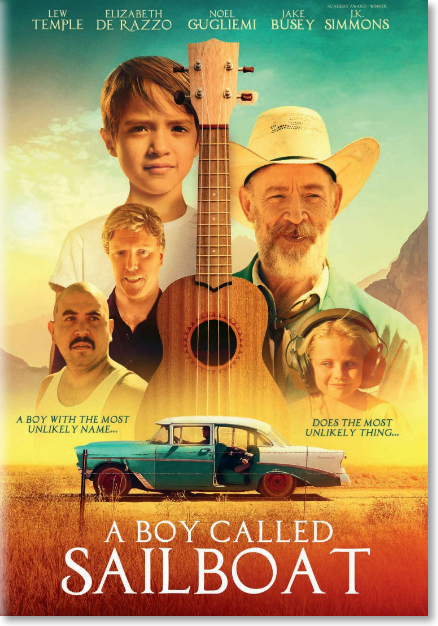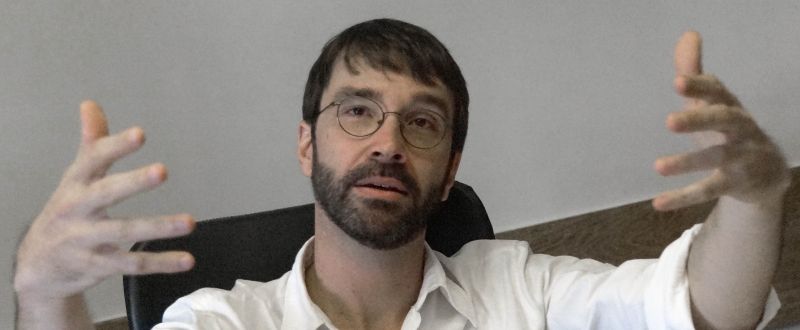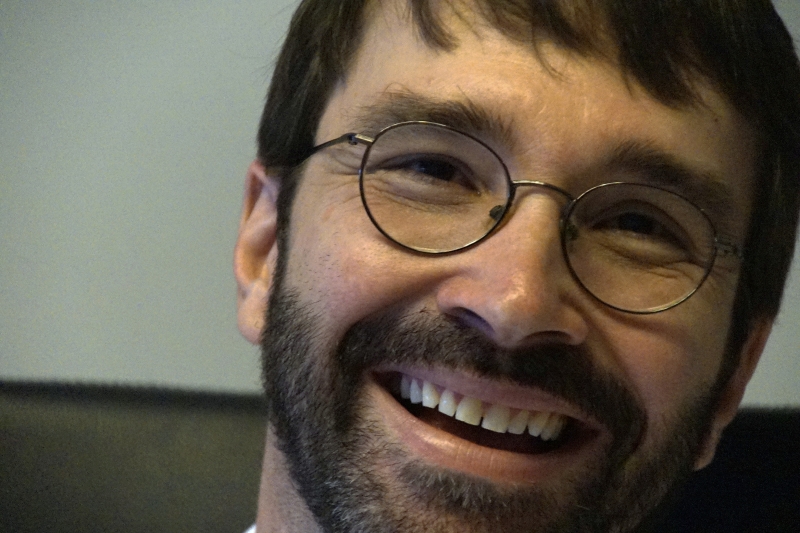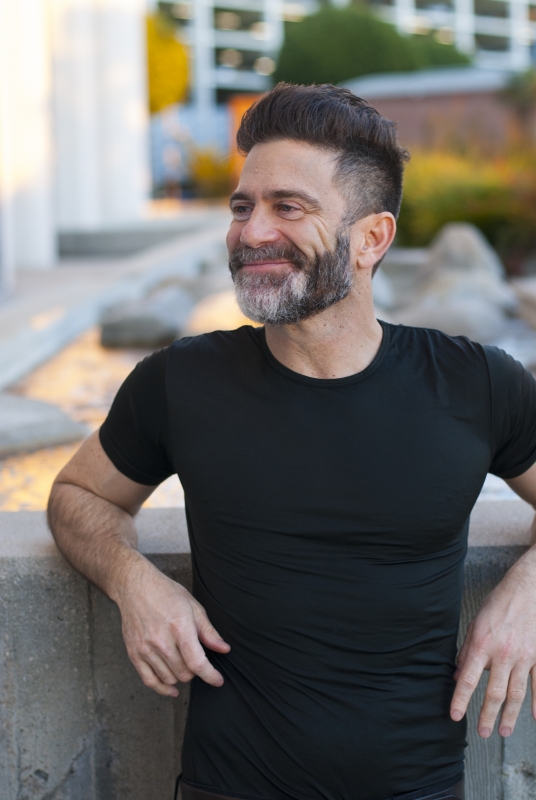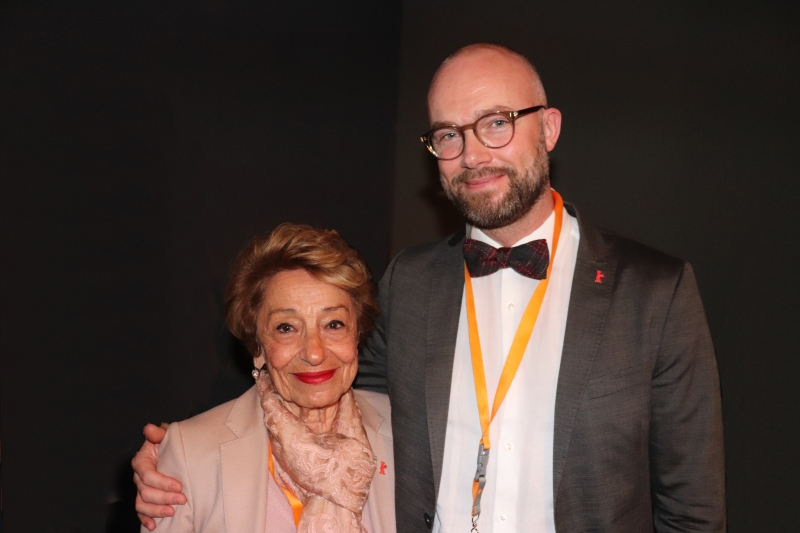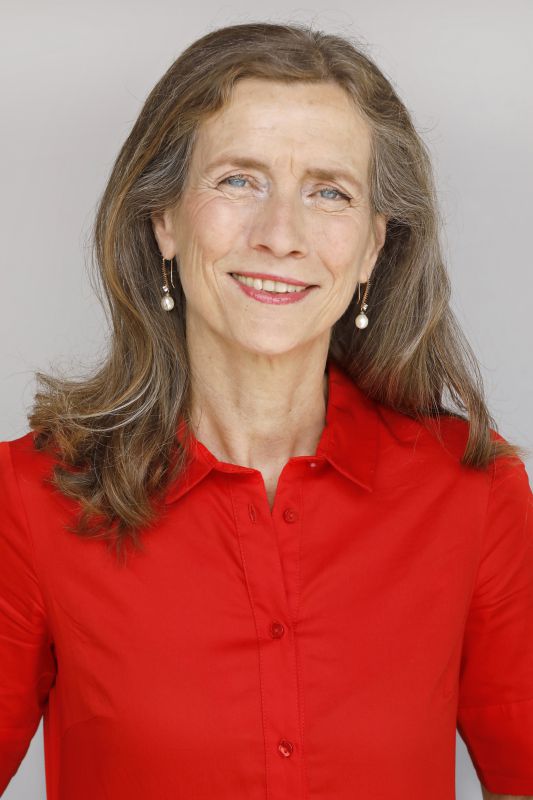Pro Tools
FILMFESTIVALS | 24/7 world wide coverage
Welcome !
Enjoy the best of both worlds: Film & Festival News, exploring the best of the film festivals community.
Launched in 1995, relentlessly connecting films to festivals, documenting and promoting festivals worldwide.
Sorry for the interruption, we needed to correct and upgrade some modules. Working on a new website.
For collaboration, editorial contributions, or publicity, please send us an email here. You need for put your full detail information if you want to be considered seriously. Thanks for understanding.
|
The 74th Berlin International Film Festival will take place from Feb 15 - 25, 2024 / EFM : Feb 15-21

Interview with Wieland Speck on Panorama 2014, what cinema can do

With 52 films, Panorama 2014 offers an overview of cinema around the world. Wieland Speck speaks in an interview about the risks of emancipation, the unbroken power of film, and the upcoming return to the Zoo Palast.
Nước (2030) by Nguyen-Vo Nghiem-Minh
Looking at the 2014 programme, one notices that almost every film has a political undertone, at the least. Was there a conscious decision to make the status quo and its mutability a central theme?
Changing the world is a matter near and dear to the Panorama heart. The political focus is certainly due to the filter that we curators function as – but we didn’t make the films ourselves. The subjects are there and we gather them. Our selection trips and delegates in different countries do give us a good idea of what’s going on politically – in the sense of social participation, even if it’s through opposition. The fear that the raid-like financial enrichment of a few at the expense of the general populace will end too soon is especially present.
In our opening film Nước (2030), for instance, the young Vietnamese director shows us a world in which global warming has raised the sea level to the point that it covers half of all the arable land – and spotlights the greed of the multinational corporations that stand to profit from the situation. The films in the programme outline a brilliant spectrum of alternatives, and finding alternatives is a creative power. And the good news is that the opportunism of the past decade is behind us. Resistance is fun again. We know this combination from the seventies, where I’m from.
Can the comparison with the seventies also be made on aesthetic level?

© Zhou Hao
Ye (The Night) by Zhou Hao
What is consistently visible is a return to patterns that once struck us as impressive. In the past three years, we’ve been experiencing an abandonment of the conventional narrative. InYe (The Night), young Chinese director Zhou Hao harks back stylistically 15 or 20 years, to early Wong Kar Wai and the emotional world of Rainer Werner Fassbinder – with the editing, with the camera. I recognise a number of interconnections, and in this case especially, it’s amazing. Zhou Hao is 21 years old and a native of the People’s Republic of China, where access to international film isn’t the best, and yet makes a film reminiscent of films older than he is. It illustrates the fact that the subjects really are in the air, and that they can rematerialize, again and indisputably – something that Ye achieves boldly and fantastically, with regards to both aesthetics and content.
The Risks of Emancipation
As usual, GLBT film is a key aspect in the programme. How important is it that Panorama has supported, visualised and reflected the emancipation process over the years?
Now we have American films that emerge from luxurious, top-notch situations in the movement. But after emancipation, the agenda is full of totally ordinary problems, and the luxury of an ordinary life is the exception. In most cultures, homosexuality still isn’t recognised as innate, it’s seen as a disturbance from outside that must be warded off. It’s linked with the application of sexual formatting as an instrument of power within national and social structures. It’s a sore subject because of the futility in asserting oneself against it. Sexuality is used to categorise people, to keep them within a certain range of behaviour. And homosexuality is just one victim of the general attitude towards sexuality and its misuse. It’s consistently a topic in Panorama, and for some, it’s even a reason to make a film. For a long time, the festivals of the world looked the other way, and our programme has always been a testament to it. That’s why we had something of a special status as early as the eighties, with all the positive and negative aspects that go along with it. Some said that we were campaigning, or doing something dishonest, just because we showed how things are.

© Marcell Rév
Viharsarok (Land of Storm) by Ádám Császi
What did you think about footballer Thomas Hitzlsperger’s outing - which met with intense reactions in the media a few weeks ago?
In this case, the subject was suddenly accepted into one of the most popular parts of society. A nice step forward, one that triggers a consciousness of homosexuality as something that exists. Up until a short while ago, Vladimir Putin was still acting like there was no such thing as homosexuality. But the Russians can’t look the other way anymore. Homosexuality is a fact, it doesn’t come from somewhere on the outside. Quite the opposite – the heterosexual family can and does create homosexual children. This awareness must be there before the first step towards emancipation can be taken. The moment it happens is very dangerous for homosexuals. Secrecy offers protection, and who wants to walk around with their sexuality hanging out of their pants for everybody to see? It’s an intimate situation that’s very exposing, no matter what kind of sexuality is being exposed. And it’s when opposition towards a certain group of people is so vehement and threatening to that group’s existence that the individual has a duty to become political.
Viharsarok (Land of Storm) is a film we have in the programme about a gay footballer. He returns to Germany, away from the macho football world and to his grandfather’s farm to keep bees. He’s not burying his head in the sand, it’s not an escape. What he also wants is to establish an alternative to what doesn’t exist anymore – or what only exists in a false way – in the countryside. Incidentally, this return to rurality is a recurrent theme in the programme. In In Grazia Di Dio (Quiet Bliss), a small family business can no longer survive in the economic climate. Three generations of women start cultivating their own food. There’s a meaningful vision here. The men are gone, the women feel at home together in a world they’ve created themselves. And the breakup of the nuclear family dictatorship is a very important aspect in the film, because that dictatorship is a dead end.
There are a lot of films in this year’s programme that take a closer look at deadlocked situations in order to break them open. Another World addresses the Occupy movement. Concerning Violence is about the consequences of the colonisation of Africa. There’s a strong connection there to emancipatory themes like those in Vulva 3.0, Fucking Different XXY or Through a Lens Darkly, where the history of photography is told from a new, African-American perspective. These are all elements that take the same line: We want to comprehend this world as one that we are a part of and can be active in.
Standardisation and how to escape from it seems to be another recurrent theme in the programme. Be it bodily standardisation in Vulva 3.0, or the standardisation of the subject in Ya Gan Bi Haeng(Night Flight). Is one of cinema’s genuine duties that of making films about the mutated, the dissidents?
I don’t want to formulate any duties for cinema, but bringing forth films about nonstandard people is actually something it does in a very natural way. Cinema can bring people together and provide a different view of things. That’s what really interests me in cinema. In Fucking Different XXY, seven transsexual, transgender directors focus on sexualities that they themselves do not share. They celebrate the perspective of the "other" and that’s an extremely interesting approach.
Ya Gan Bi Haeng could be cross-read with Hoje eu quero voltar sozinho (The Way He Looks), a Brazilian film about a blind school student who has to cope with his handicap at a normal school. They’re already at the place we want to be someday: People aren’t filed away in special shoeboxes – even though the child has to put up with teasing in this case. Of course it’s about standardisation, especially since the blind boy also discovers his homosexual love for a new student. What makes cinema worth seeing is the transgression of these standardisations. The South Korean director of Ya Gan Bi Haeng, LeeSong Hee-il, is in the programme for the third time, and every time he presents a highly intelligent way of supporting the individual who doesn’t fit the norm. He portrays perceptions as important personal histories, and as an analysis of Korean society, where the pressure to perform is extreme.
The Impoverishment of the World
Many of the protagonists in the programme are forced to start a new life due to their financial status. Is there a new global class society that transcends all national borders?

© Aman Dhillon (Highway2014)
Highway von Imtiaz Ali
You’re essentially describing a basic configuration in cinema. The better films have this kind of structure: An individual has to come to terms with something, and she usually has something that appeals to us, otherwise there’s no reason for us to listen to her story. That’s how we interact, because we want to learn from and be inspired by one another. In the Greek film Na kathese ke na kitas (Standing Aside, Watching), it’s a young woman who leaves the city and returns to the countryside. The place has changed and now there’s a dreadful and violent patriarch in charge. How can she reformat this little world in such a way that she can live there? This classic problem does actually pop up in a number of films. In Bai Mi Zha Dan Ke (The Rice Bomber), a Taiwanese farmer becomes a terrorist because the government set the course wrong. The class situations haven’t changed much; it’s more about power structures. Who has the power, and what are they doing with it? Is power in any way malleable? It’s these kinds of greater issues that are visible in both the Indian films, for instance, where the classes are called castes.
In Highway, a woman is kidnapped accidentally. She is of a higher caste, while the thieves – who actually only wanted to steal a big car – are of a lower one, and are actually only allowed to steal within their own caste or lower. Then they’re in a pickle because they’ve kidnapped a higher caste individual. A fantastic Bollywood production that – somewhat unusually – stars a woman. In Papilio Buddha, the gang rapes – which also only take place caste-downwards - are also the background. A woman of higher caste is never raped by men of a lower one; that’s the system and it’s a systematic problem. The film tackles it and revolts against it. Last Hijack tells the story of fishermen with empty nets. They have no desire at all to break the law, but are recruited by pirates and slip into crime. The same goes for Bing Du (Ice Poison), in which a poverty stricken farmer in Myanmar becomes a taxi driver for drug couriers.
In 2014, the Berlinale is putting an emphasis on the documentary. In your eyes, how reasonable is the categorical separation of fiction and documentary film in this day and age?
We don’t separate the categories. Panorama Dokumente shows films that are more documental, but that needn’t be documentaries. Last Hijack makes use of re-enacted scenes and animations, so a mixture of different elements. In Der Kreis (The Circle), there are also whole scenes that are re-enacted by actors, and the real protagonists make their statements in interviews. Today the formats all go topsy-turvy. Fiction film has a tendency towards being “based on a true story” this year. And in fact, the documental and the fictional are at close quarters. The distinction between the main programme and Dokumente in Panorama is mainly designed for the market, a navigation tool for the buyers. In the nineties we put our weight behind bringing the documentary film back to cinema – which it had completely disappeared from. That had to do with developments in other media – especially in television, where the focus was increasingly on opinions and statements. The situation has improved since then.
Last Hijack by Tommy Pallotta and Femke Wolting
How do you feel about the upcoming return to the Zoo Palast?
Oh, wonderful! We’re looking forward to it. We really enjoyed being in the Friedrichstadt-Palast; we certainly were intimidated by the size of the theatre, but it worked well. The Zoo Palast is a highly emotional building for me – my first film screened there in 1981 at the Berlinale! Tearing it down or repurposing it would have been a cultural crime against Berlin. The outside is protected as a historic building, but anything could have happened with the inside. And Yves Saint Laurent, the film that will open the Zoo Palast programme, is a wonderful film for the occasion, a great European film with a gay success story. It’s truly grand cinema, great actors, and French cinema already sits on a pedestal for us. So I’m really happy about it.
|
About Berlin
 Chatelin Bruno Chatelin Bruno
Berlin 2019: The dailies from the Berlin Film Festival brought to you by our team of festival ambassadors. Vanessa McMahon, Alex Deleon, Laurie Gordon, Lindsay Bellinger and Bruno Chatelin...
Ambiance, film reviews, trailers and podcasts, EFM insider information, and much more.
Feel free to leave us your comments and share the blogs with more fans from the festivals scene.
Berlin Germany View my profileSend me a message
|
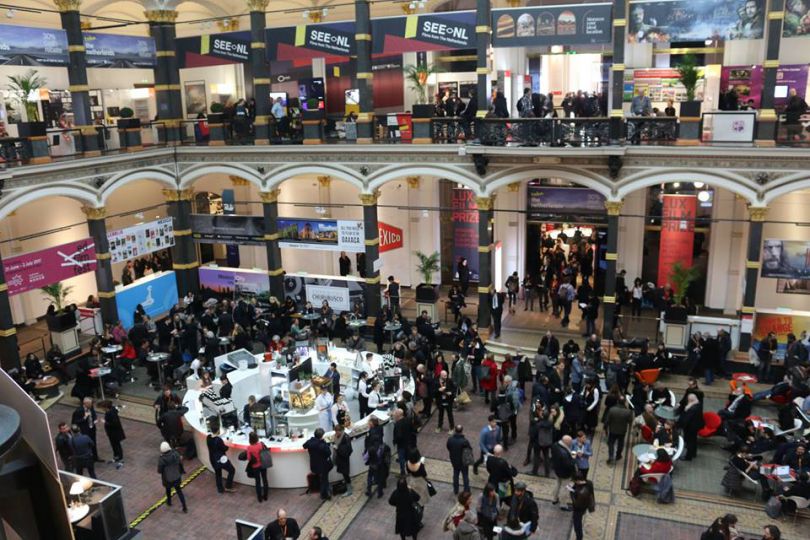

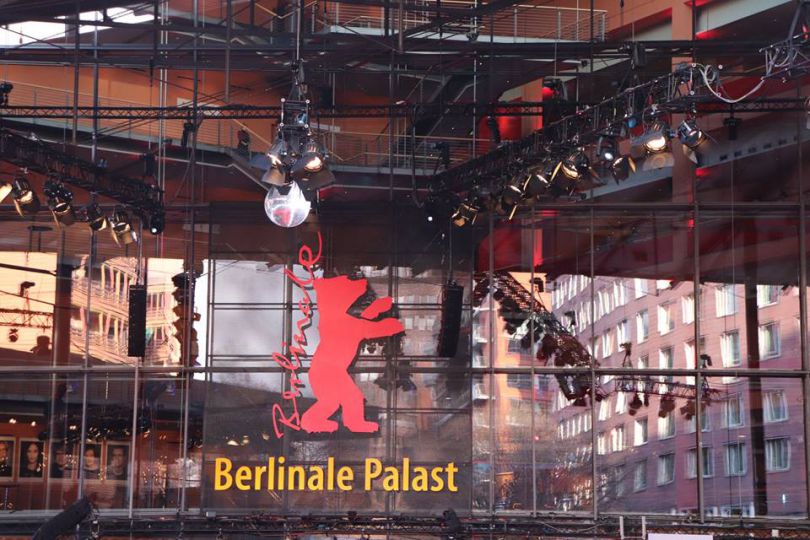

 Chatelin Bruno
Chatelin Bruno 
























